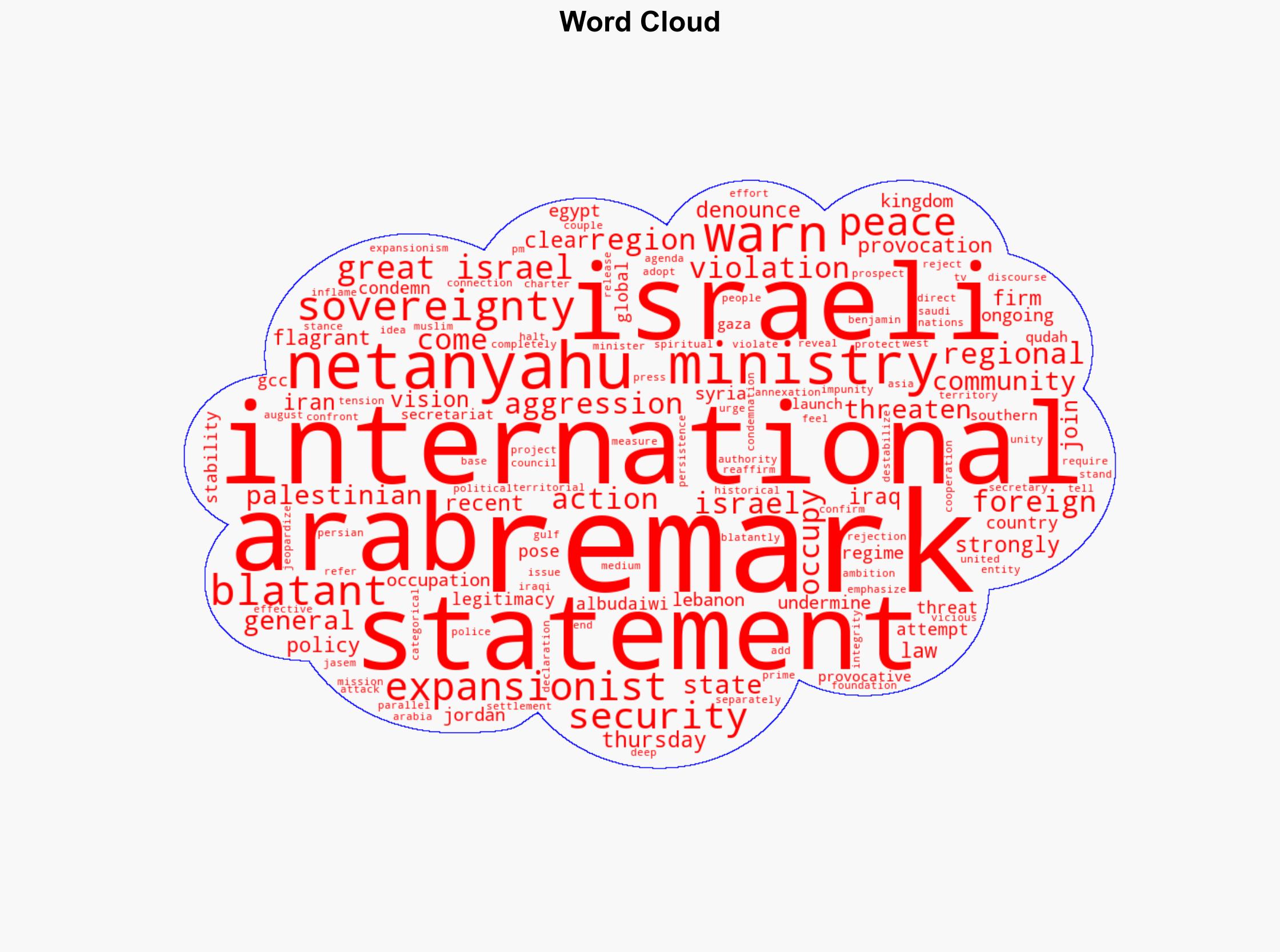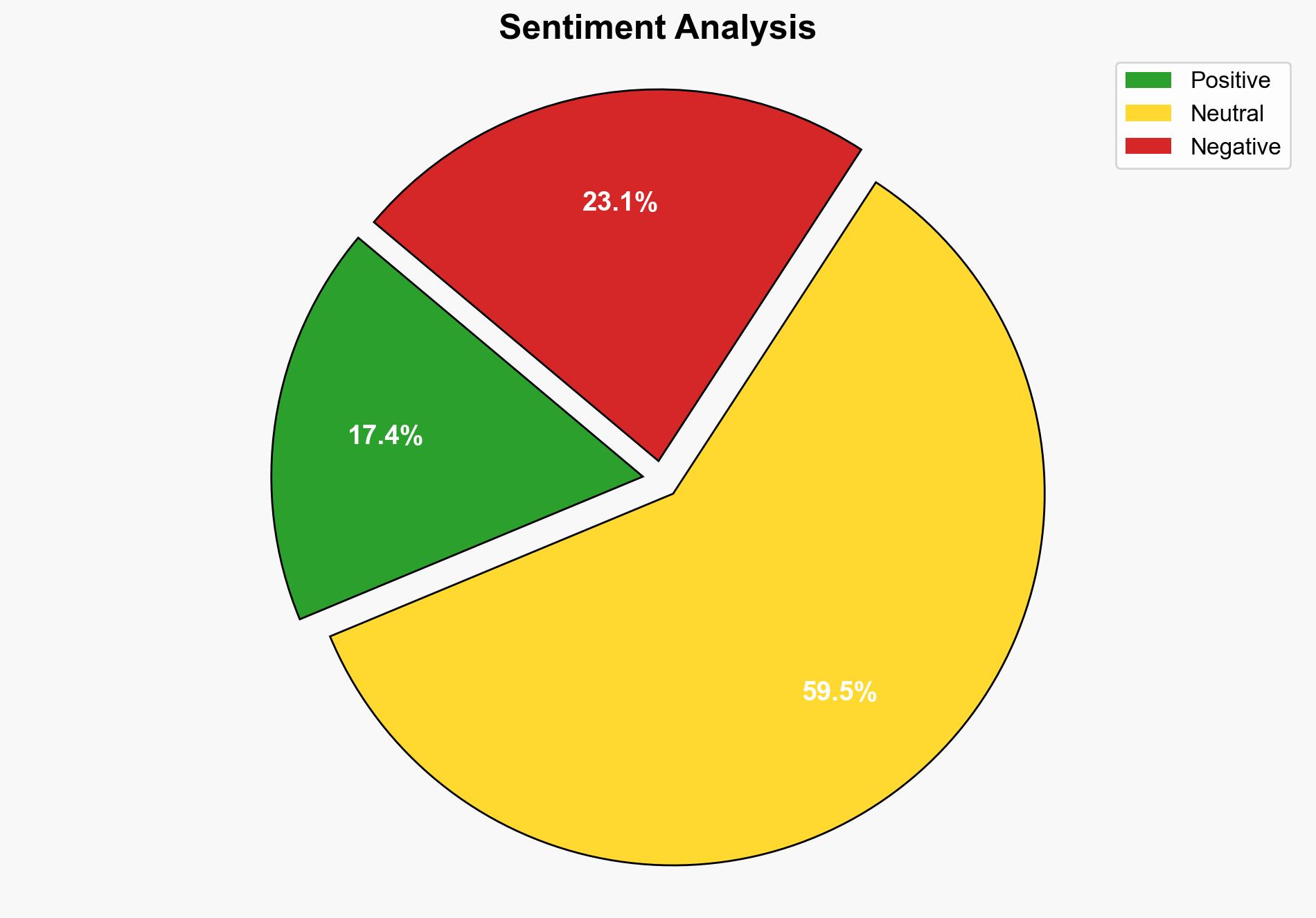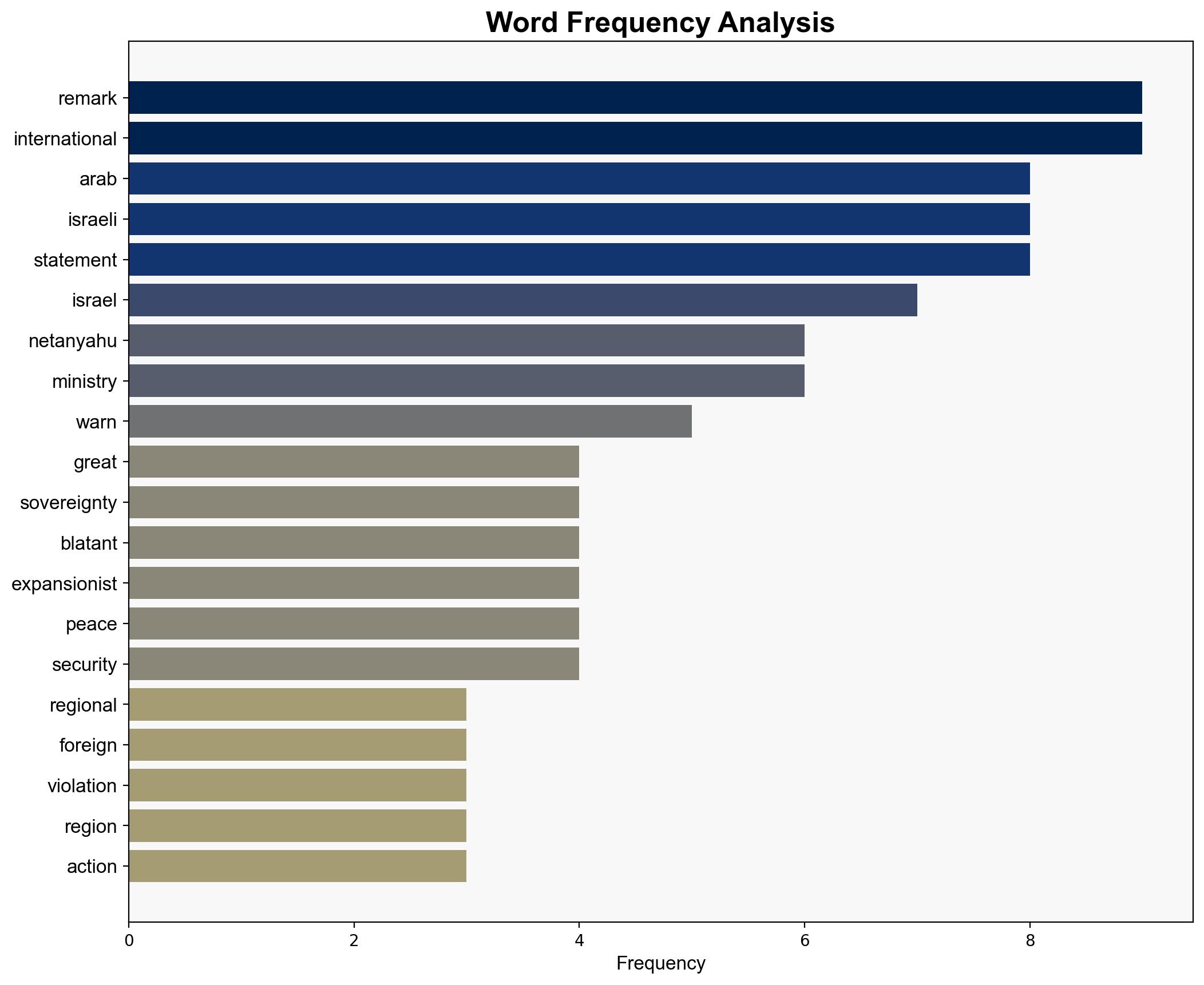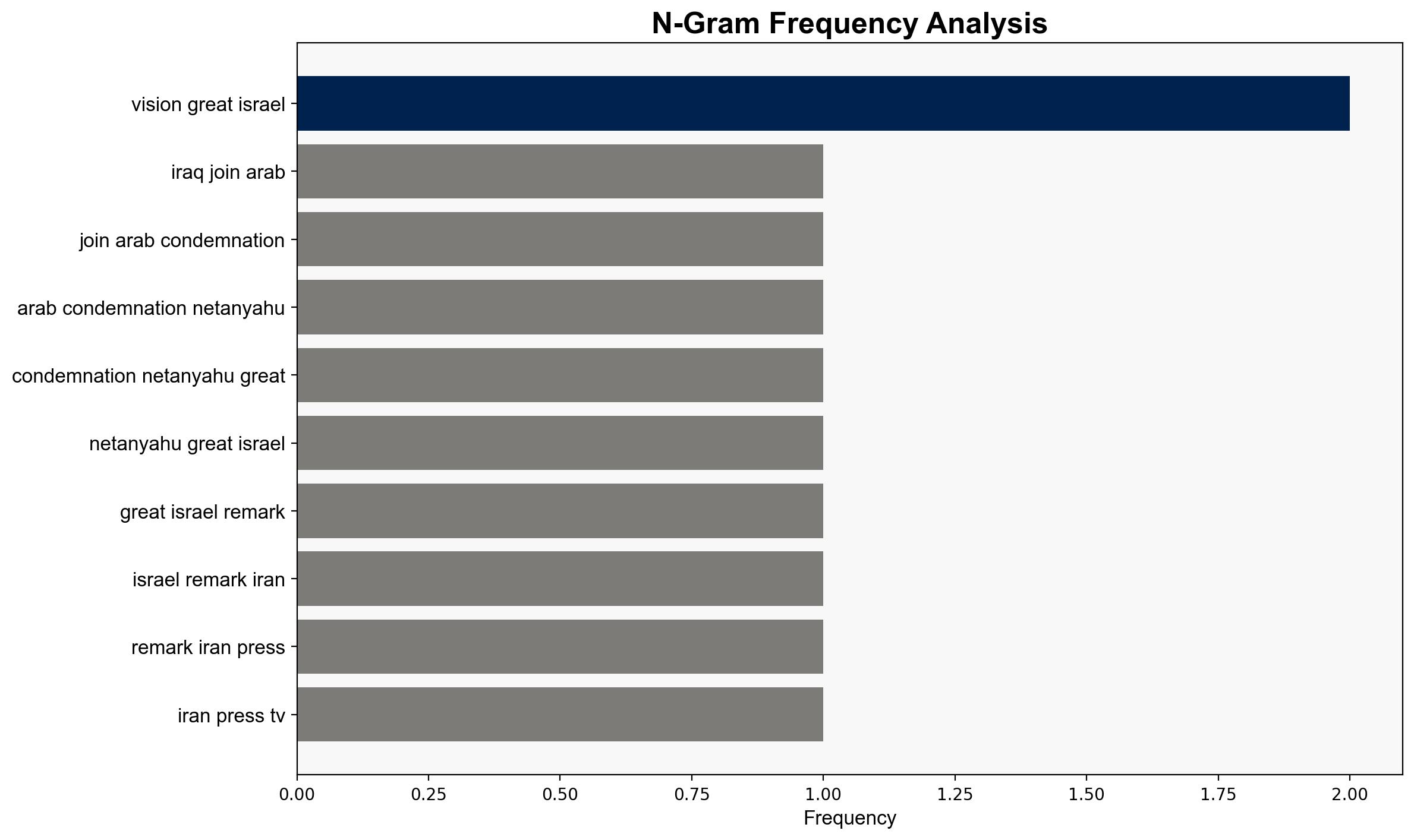Iraq joins Arab condemnation of Netanyahu’s ‘Greater Israel’ remarks – Globalsecurity.org
Published on: 2025-08-15
Intelligence Report: Iraq joins Arab condemnation of Netanyahu’s ‘Greater Israel’ remarks – Globalsecurity.org
1. BLUF (Bottom Line Up Front)
The strategic judgment is that Netanyahu’s remarks on a ‘Greater Israel’ have significantly heightened regional tensions, with a high confidence level that this rhetoric will exacerbate existing conflicts and provoke further diplomatic backlash from Arab states. The most supported hypothesis is that these remarks are part of a broader Israeli strategy to assert territorial claims, which could destabilize the region. Recommended action includes diplomatic engagement to de-escalate tensions and reinforce international legal norms.
2. Competing Hypotheses
1. **Hypothesis A**: Netanyahu’s remarks are a strategic move to solidify domestic political support by appealing to nationalist sentiments, with no immediate intention of territorial expansion.
2. **Hypothesis B**: The remarks reflect a genuine policy shift towards territorial expansion, signaling a more aggressive Israeli stance in the region.
Using ACH 2.0, Hypothesis B is better supported due to the consistent pattern of Israeli actions in Gaza and other territories, aligning with the rhetoric of expansion. The broad Arab condemnation and the historical context of Israeli territorial claims further support this hypothesis.
3. Key Assumptions and Red Flags
– **Assumptions**: It is assumed that Netanyahu’s remarks are reflective of broader Israeli government policy, not just personal rhetoric.
– **Red Flags**: The lack of direct Israeli policy documents supporting the expansionist agenda suggests potential over-reliance on rhetoric as evidence.
– **Blind Spots**: The internal Israeli political dynamics and potential opposition within Israel to such expansionist policies are not fully explored.
4. Implications and Strategic Risks
– **Geopolitical Risks**: Increased tensions could lead to military confrontations, particularly in contested areas like Gaza and the Golan Heights.
– **Economic Risks**: Regional instability may disrupt trade routes and energy supplies, impacting global markets.
– **Cyber and Psychological Dimensions**: Heightened rhetoric could lead to increased cyber operations and propaganda efforts by both state and non-state actors.
5. Recommendations and Outlook
- Engage in multilateral diplomatic efforts to reaffirm international borders and discourage unilateral actions.
- Enhance intelligence-sharing with regional allies to monitor potential escalations.
- Scenario Projections:
- **Best Case**: Diplomatic efforts lead to a de-escalation and renewed peace talks.
- **Worst Case**: Military conflict erupts, drawing in multiple regional actors.
- **Most Likely**: Continued diplomatic tensions with sporadic localized conflicts.
6. Key Individuals and Entities
– Benjamin Netanyahu
– Iraqi Foreign Ministry
– Persian Gulf Cooperation Council (GCC)
– Arab League
7. Thematic Tags
national security threats, geopolitical tensions, regional stability, diplomatic relations





